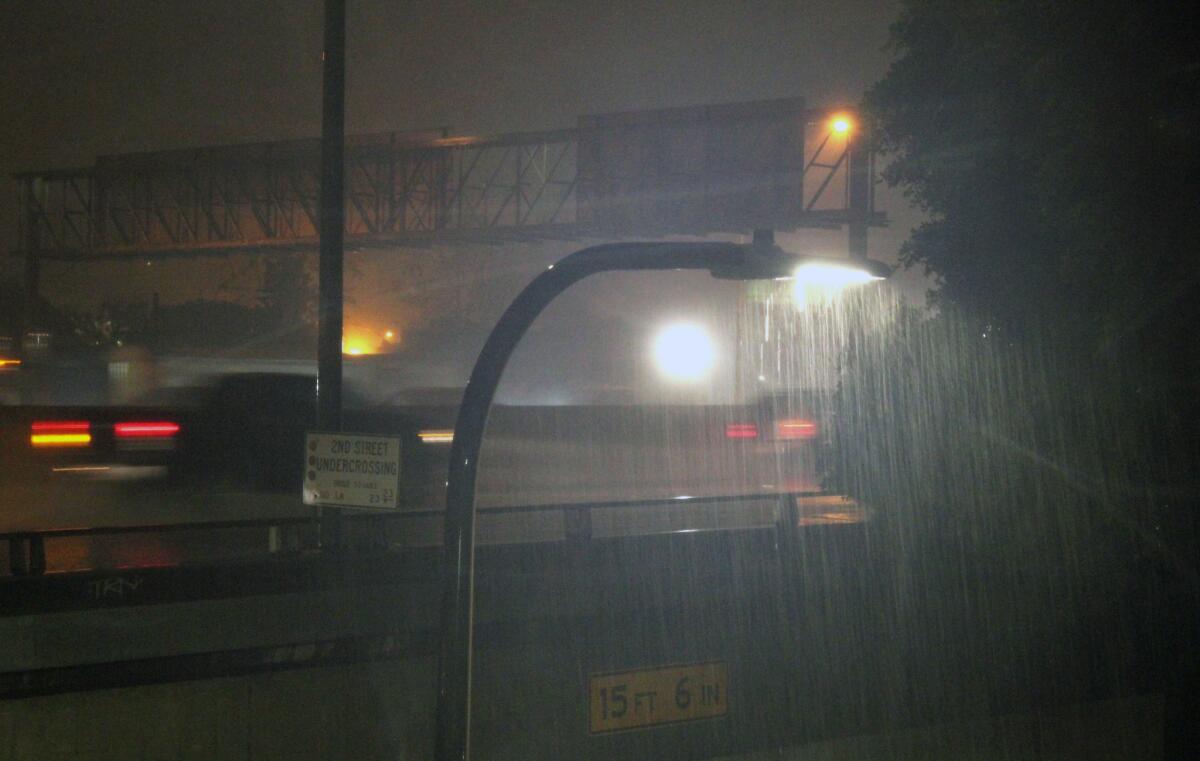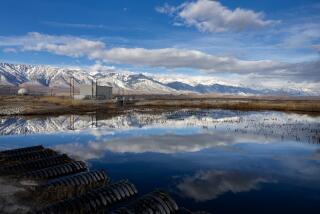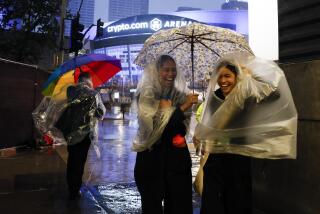Record L.A. storm won’t help much with water shortage

Commuter traffic makes its way along a freeway in downtown Los Angeles as heavy rain falls early on Sept. 15.
Southern California awoke to a deluge of rain -- a welcome relief in drought country.
But how much will the record rain help the water shortage?
The short answer is not that much.
Between 80% and 90% of the rain that falls in the urban Southland winds up in a vast storm drain system that eventually dumps it into the ocean.
See the most-read stories this hour >>
Locally, rain collects in one of 14 reservoirs in the mountains and is held for later use. At the same time, water in the system is shunted to sunken basins called “spreading grounds,” where it slowly seeps into the ground and replenishes the local aquifer.
About 38% of the county’s water comes from local groundwater sources, according to a recent UCLA study.
Rain has nitrogen in it and can acts as nature’s fertilizer. It also cleans the air of dust and pollen, which can help temporarily relieve people suffering from allergies.
Water and Power is The Times’ guide to the drought. Sign up to get the free newsletter >>
This storm offers a preview of the wet El Niño winter officials have been predicting. The last major El Niño storm to hit Southern California caused 17 deaths and more than half a billion dollars in damage in California.
Los Angeles County flood control officials are beginning to plan for the worst.
Officials say they’ll have tens of thousands of catch basins cleaned out to hold mud, rocks and other debris that might spill out from saturated hillsides.
Twitter: @ByMattStevens
More to Read
Sign up for Essential California
The most important California stories and recommendations in your inbox every morning.
You may occasionally receive promotional content from the Los Angeles Times.











